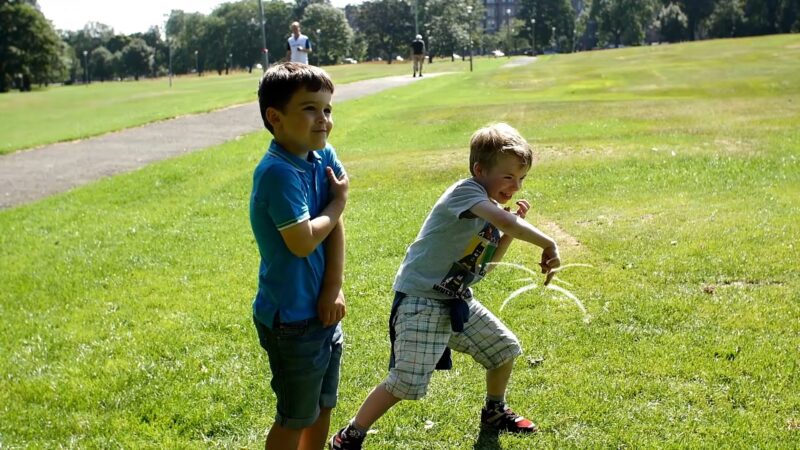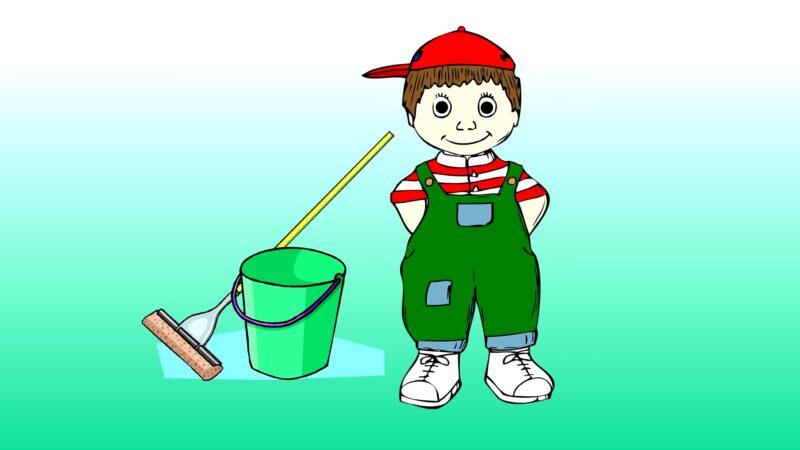Character traits for kids: Character qualities are values that a person holds and expresses in his personality. These personality qualities influence how a person behaves and makes decisions daily.
From an early age, a child must establish favorable tips for teaching character traits for kids. However, if you truly want your child to flourish in life. It would help if you devoted your time to cultivating their best character characteristics.
Because children are quick learners, it is critical to instill character characteristics in them from a young age. They will carry with them and aid them for the rest of life the principles they learn at a young age.
It is critical for children’s general growth and success to develop positive character traits. It is up to parents to instill positive values.
Teach character traits to kids if they want them to grow up with them. It may be tough to teach these traits.
However, with the appropriate approach, children will develop the attributes and continue to learn.
Character Traits Definition for kids?
Children’s character traits are words that characterize a child’s qualities or personality that make them who they are as adults and hence affect the children’s educational experience. Children’s character qualities include all of a child’s attitudes and behaviors that will shape the child’s character when they grow up.
All children have their own set of positive and undesirable traits. When it comes to children’s character traits, descriptive adjectives like patience and jealousy are used.
Top 20 Character Traits For Your Kids And How To Teach
Here is the best list of positive character traits and this article also guides you on how to develop positive characters in your kids:
1. Curiosity
Many successful discoveries and innovations have been the result of curiosity. The natural desire to find solutions keeps things interesting and encourages active thinking.
As a result, it’s critical to keep your child’s curiosity alive, and this can be aided by teaching those new skills, taking them to new locations, and asking them questions. Curiosity is what keeps the child in us alive, and unless my little guy learns to challenge himself and others on the whys and hows of life, he will be unable to grasp its intricacies.
2. Adaptability
Parents typically strive to protect their children from stress and grief, but resilience is necessary for children to cope with pain and trauma. Instead of running away from problems, children should learn how to deal with them.
3. Creativity

Creativity goes beyond just artistic expression; it involves imaginative thinking in various forms. Alongside academics, children should engage in creative activities like music, photography, and theatre.
Participating in these artistic pursuits or even talent shows can enhance their communication and problem-solving skills.
4. Compassion

Raising empathic children is beneficial to the community their emotional intelligence and, possibly, their success. Empathy may be developed in various methods, including modeling empathy and broadening your child’s outside circle to include individuals who are different from them, including varied characters in books and movies.
It is the responsibility of parents to instill in their children a natural feeling of empathy and emphasize the necessity of caring for others. Compassion will benefit not only the community but also the child’s emotional intelligence.
As opposed to indifference or ruthlessness, being human to everybody and having a sympathetic attitude is unquestionably a desirable character attribute.
5. Confidence

The way a child thinks about himself will influence how he behaves. Positive self-esteem has a big influence on how you act and how happy you are.
Parents must realistically recognize and reward their children’s positive behaviors while focusing solely on behavior that will undermine their confidence. Experts recommend rewarding positive behavior rather than focusing on bad behavior and appropriately praising your child—constant and overwhelming praise is ineffective.
Allowing kids to fail and overcome challenges on their own will also boost their confidence in their future undertakings. Remember that kids will not always have their parents to assist them, and they must believe in their ability to confront obstacles independently.
6. Patience
Children often lack motivation as a character trait in today’s fast-paced environment. Every child should have the ability to defer gratification and wait for the perfect moment.
7. Honesty
Teaching children honesty and truthfulness helps them become trustworthy individuals. Dishonesty often arises from fearing the consequences of one’s actions, but children should be taught to face these outcomes.
An honest person tends to be more content than someone deceitful. Parents should proactively discuss integrity with their kids before they face ethical dilemmas.
Conversations about family values and hypothetical moral challenges can equip children to handle real-life situations.
8. Bravery

Being courageous means facing your fears head-on. Children should be able to step outside of their comfort zones and have the confidence to face their fears.
Understanding anything new is like venturing into the unknown. Fear and anxiety can stifle learning, whereas fortitude to face the unknown makes it simpler to focus.
9. Flexibility

Rigidity frequently obstructs growth and progress. An adoptive child may easily adjust to new settings and changes.
Children who have a high level of adaptation are frequently flexible and work well in groups.
10. Optimism
Optimism focuses on cultivating an optimistic attitude in the face of adversity and goes a great way toward ensuring a person’s success. Optimistic children are willing to tackle obstacles, form strong bonds, and view failure as a learning experience.
Optimism in the face of adversity goes a long way toward getting things where they need to go. An optimist maintains a positive attitude and radiates positivity, benefiting not just himself but also everyone around him.
11. Resilience

Even for children, life may be challenging. Resilience is essential for coping with adversity.
Resilient youngsters are better able to deal with the inevitable traumas and hardships that they will encounter throughout their lives. In the long term, teaching your children to be resilient will benefit them more than shielding them from terrible events. Problem-solving with your child is a great method to help him deal with a difficult situation at school or with his friends instead of just avoiding it.
Parents may assist their children to put their issues in perspective so that they learn that most challenges are not as enormous or overwhelming as they first appear to be.
12. Cleverness

When it comes to finding answers to challenges, businesses look for people who can think beyond the box. In middle-class American families, kids are rarely called upon to be inventive because they have all their basic requirements addressed.
Having access to the Internet and a plethora of apps is convenient, but it doesn’t instill a sense of self-reliance in children. Consequently, parents should strive to instill this quality in their children.
To assist your youngster in becoming more resourceful and creative, try some new activities. Try to get kids to think of innovative ways to repurpose commonplace items like plastic bottles, egg cartons, and elastic bands.
13. Love And Forgiveness

Because of the resentment, your child may not get along well with some people in the future. Your child’s grudges can be alleviated by teaching them to give others second chances and framing the forgiving mindset.
To help them understand the need for forgiveness, ask them to think about why the person who wronged them acted the way they did. Putting yourself in another person’s situation can help you develop empathy.
14. Responsibility

As a starting point, teach your children the importance of being responsible for their school work and studies, which will help them get the admiration of others. They will benefit from being responsible throughout their entire lives.
15. Dignity
All children and adults must learn to strike a balance between having high self-esteem and remaining humble. It can be difficult to instill humility in children in today’s praise-and-validation parenting culture. No one wants arrogant adults to grow up to be their children.
Confidence in oneself and a positive self-perception go hand in hand, and a child who doesn’t feel inferior to others will have less of a desire to boast about their accomplishments. The first step in teaching children humility is to model it yourself.
It is important for parents to recognize when they have made a mistake or don’t know the solution and to be willing to offer credit to those who do. Then they can spread the word to their children and get them to do the same.
Playing role-playing games with children and rewarding them when they display humility is also beneficial.
16. Independence
Your child’s self-esteem will grow if you teach them not to rely on others and take full responsibility for their triumphs and mistakes. Having a positive attitude and realizing that he is not reliant on anyone else for his achievement would benefit him.
17. Ethics

How important is it for you to be ethical in your dealings with others? Integrity needs to be instilled in your children from an early age.
Teaching children to be honest and ethical requires real-life examples to help them grasp the concepts and instill them in themselves. For a successful existence, teach them to distinguish right from wrong and good from bad.
18. Tolerance
Being patient and understanding toward others will aid in your child’s achievement. To avoid the misunderstanding that tolerance is a form of resistance, teaching tolerance to youngsters must be done correctly.
19. Supportiveness
Your child will benefit much if you instill in them a desire to help others. As a result, they’ll be able to build relationships and become more social because they’ll be trusted.
Your child will be a better team member if he or she is helpful. You may start teaching your children to help around the house as soon as they are old enough, and you can also urge them to help individuals in need on the street.
20. The Ability To Interact With Others In A Kind Manner

Social intersection and skills are essential in daily living. Good social skills are related to better grades and self-esteem.
Parents should focus on those activities that help develop social skills early.
Why Do You Need To Teach Character Traits To Kids?
From the start, parents and teachers play a vital role in instilling character traits in children, setting them up for future success. Children learn and internalize these traits best when they see real-world examples.
The saying “actions speak louder than words” is especially true for kids. Observing interactions provides insights into an individual’s character.
It’s crucial to introduce children to positive traits early on, nurturing their growth over time. Beyond academics, emphasize character development for a comprehensive education.
Conclusion
The important tips for teaching character traits to kids. To be successful in life and to be a well-rounded person, children must learn a variety of character traits. Many of these characteristics will benefit children not only in adulthood, but will also help them succeed academically.
